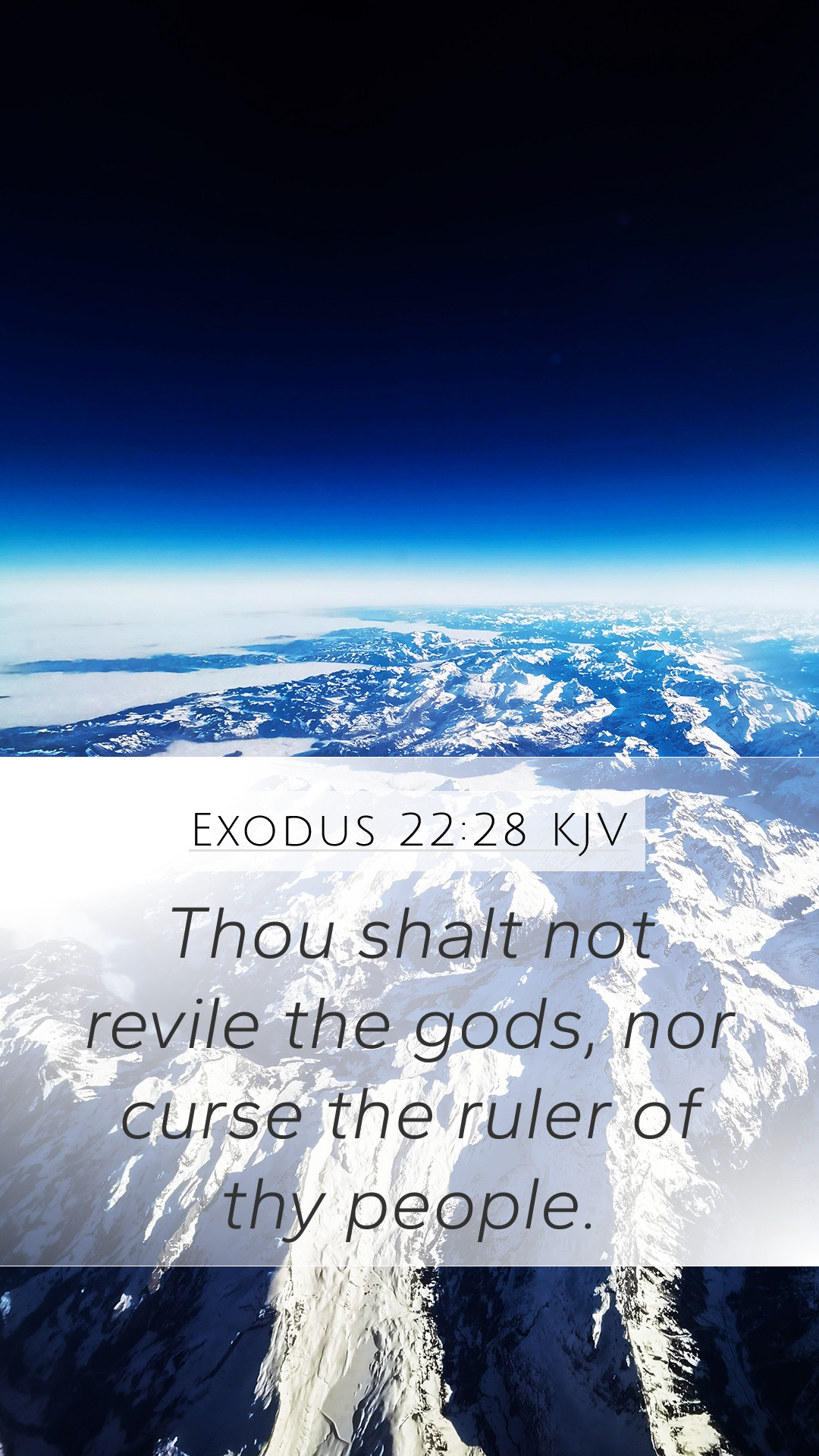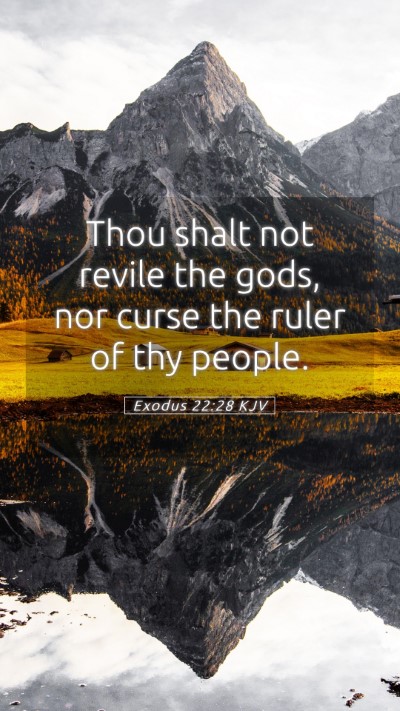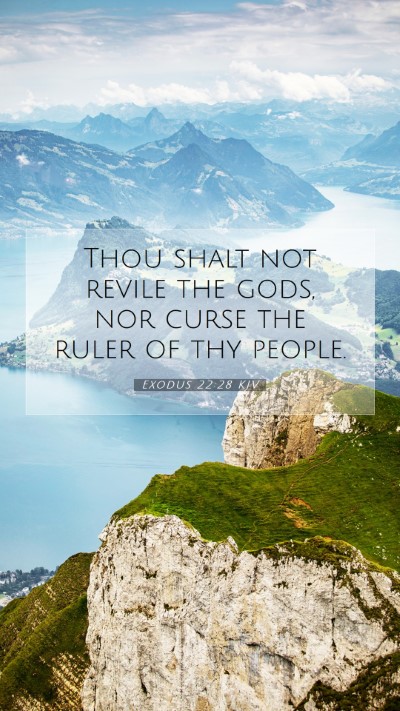Bible Verse Commentary on Exodus 22:28
Verse: "Thou shalt not revile the gods, nor curse the ruler of thy people." (Exodus 22:28, KJV)
Introduction
Exodus 22:28 addresses the treatment of both divine and human authorities in society. The command to not revile or curse highlights the need for respect towards God and those in leadership roles. Understanding this verse involves exploring themes of authority, respect, and the moral responsibilities expected of individuals in their communities.
Verse Breakdown and Interpretation
-
Respect for Divine Authority:
Matthew Henry notes that "the gods" refers to divine beings or celestial authorities, emphasizing the reverence that God demands from His people. The use of the term suggests a broader understanding that God's authority is paramount and should govern the behavior of His followers.
-
Human Leadership:
Albert Barnes elaborates on the significance of the rulers, highlighting that cursing those appointed by God to lead is seen as a direct affront to God's order. This reflects the ancient societal values where leaders were often viewed as representatives of divine authority.
-
Moral and Ethical Implications:
Adam Clarke emphasizes that the commands reflect broader moral principles. By respecting authority, individuals contribute to societal harmony and reflect God's will in their actions. The verse serves as a reminder that respect and honor should characterize the believer's relationship with both God and earthly leaders.
Contextual Considerations
To understand Exodus 22:28, it is crucial to consider the historical context in which the Israelites lived. As they formed a new identity and nation, establishing laws that governed respect towards God and leaders was essential for their social cohesion. The command resonates with the overarching themes of justice and community in the Mosaic Law.
Theological Insights
-
God's Sovereignty:
This verse underscores God's sovereignty over the affairs of both heaven and earth. It serves as a reminder to the faithful of the divine order established within their communities.
-
Ultimate Accountability:
The warnings against cursing leaders hint at the idea that all authority ultimately derives from God, and as such, leaders will be held accountable for their actions and decisions, as will those who speak against them.
Application and Relevance
In the contemporary context, Exodus 22:28 challenges believers to consider how they speak about their leaders, whether in government, the church, or other social structures. Online Bible study groups often engage with this verse to discuss the ethics of political discourse and the importance of maintaining respect, even amidst disagreement.
Cross References
- Romans 13:1-2 - "Let every soul be subject unto the higher powers..."
- 1 Peter 2:17 - "Honor all men. Love the brotherhood. Fear God. Honor the king."
- Proverbs 24:21 - "My son, fear thou the Lord and the king..."
Conclusion
In summary, Exodus 22:28 stands as an important biblical directive that illustrates the relationship between the believer, their God, and the authorities He places in power. By adhering to this command, individuals not only honor God but also promote a peaceful and respectful community. Engaging with the meanings of Bible verses like this one in Bible study lessons can deepen understanding and foster a spirit of unity among believers.


